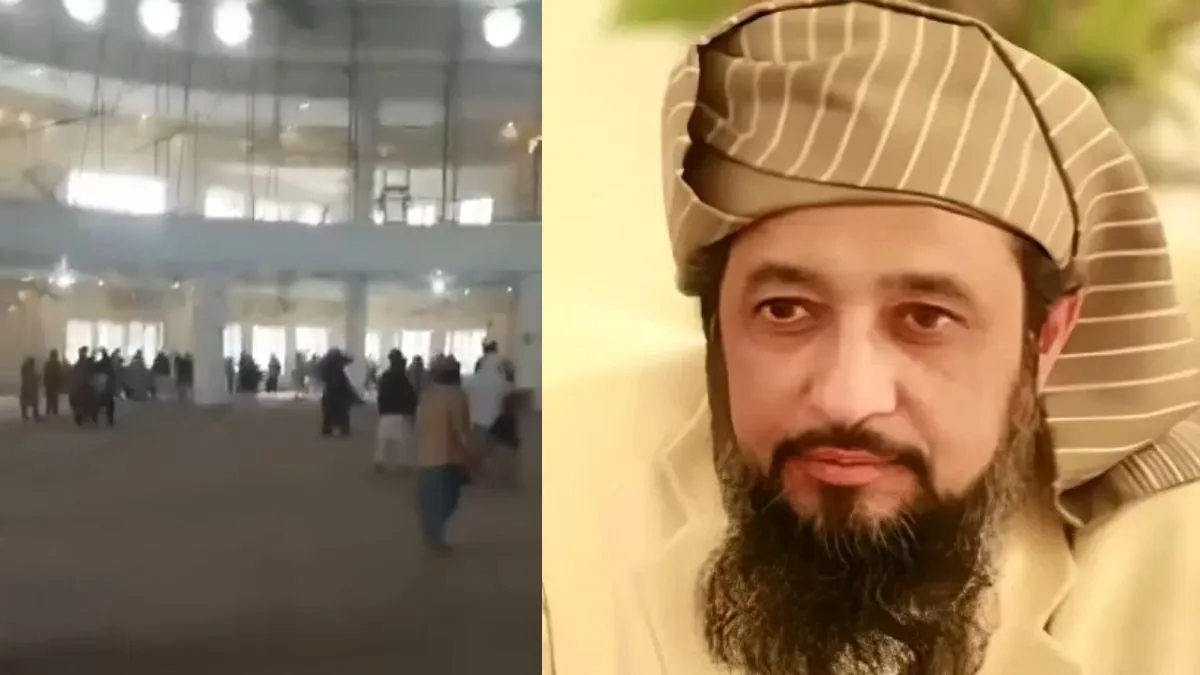- By Ajeet Kumar
- Fri, 28 Feb 2025 04:00 PM (IST)
- Source:JND
Pakistan blast news: A suspected suicide bombing at Darul Uloom Haqqania in Pakistan has resulted in at least five deaths and several injuries. Among the killed was Hamidul Haq Haqqani, leader of Jamiat Ulema-e-Islam-Sami (JUI-S) and son of the late Maulana Samiul Haq Haqqani, the former JUI-S leader. Local media reports indicate that Maulana Hamidul Haq Haqqani, who was in the front row during Friday prayers, was killed in the blast, suggesting he was the likely target of the attack.
#Pakistan : Suicide blast during Friday prayers at Darul Uloom Haqqania, Akora Khattak. JUI-S chief Maulana Hamid-ul-Haq among the injured. Over 10 casualties reported. This madrassa is significant as it has produced top Taliban leaders, including Mullah Omar and Sirajuddin… pic.twitter.com/sc0Mfe524g
— Ghulam Abbas Shah (@ghulamabbasshah) February 28, 2025
Who was Hamidul Haq Haqqani?
The attack targeted Maulana Hamidul Haq, KP Inspector General of Police Zulfiqar Hameed said. He confirmed the death of Jamiat Ulema-e-Islam-Sami’s head, Maulana Hamidul Haq, to reporters. The KP IGP added that it was a suicide blast, local media reported.
Hamidul Haq assumed leadership of the Jamiat Ulema-e-Islam-Sami (JUI-S) party following the assassination of his father, Maulana Samiul Haq, in 2018. Samiul Haq was stabbed multiple times at his home in Rawalpindi.
According to the seminary’s official website, Darul Uloom Haqqania was founded by Islamic scholar Maulana Abdul Haq Haqqani in September 1947.
Darul Uloom
The institution has faced controversy over the years, particularly due to allegations that some of its students were connected to the assassination of former Prime Minister Benazir Bhutto. However, the madrassa has denied any ties to those accused in the case.
Notable alumni of Darul Uloom Haqqania include prominent Taliban figures such as Amir Khan Muttaqi, Abdul Latif Mansoor, Maulvi Ahmad Jan, Mullah Jalaluddin Haqani, Maulvi Qalamudin, Arifullah Arif, and Mullah Khairullah Khairkhwa, as reported by the BBC.
